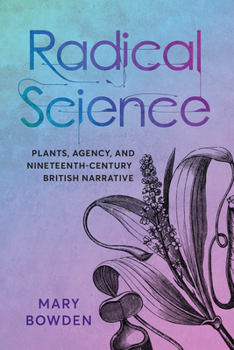Radical Science: Plants, Agency, and Nineteenth-Century British Narrative
Can plants move? Can they think? Can they act? In Radical Science, Mary Bowden shows that debates about plants' capabilities are not new but can be traced to the nineteenth century, where they moved from scientific inquiries to popular articles and literary fiction. Examining the work of nineteenth-century physiological botanists, Bowden expands beyond Charles Darwin's work in the field to uncover the full story of these debates and the impacts they had on literature, culture, and people. While many have interpreted the frequent comparisons between plants and people in nineteenth-century literature to be exemplary of aesthetic values or sexual symbolism, Bowden maintains that comparisons between plants and women, members of the working class, and people of color reiterate botanical debates about how to recognize agency in beings that are assumed to be passive. Studying the scientific texts of Darwin and Maria Elizabetha Jacson alongside social problem novels by Elizabeth Gaskell and Charles Kingsley and early science fiction by H. G. Wells, Radical Science foregrounds the connection between science and literature and ultimately suggests that we look to the propositions of nineteenth-century physiological botany to find more sustaining models of social and environmental relationship.
Format:Hardcover
Language:English
ISBN:0814216099
ISBN13:9780814216095
Release Date:March 2026
Publisher:Ohio State University Press
Length:214 Pages
Customer Reviews
0 rating





